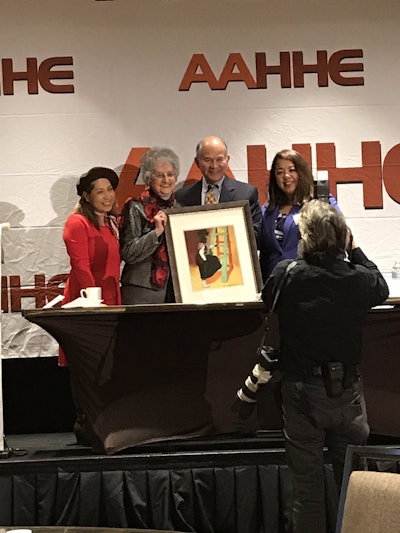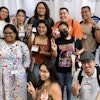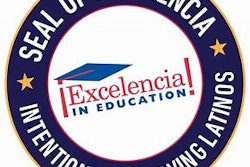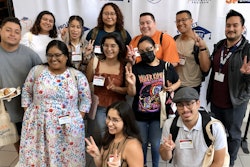COSTA MESA, Calif. — Showcasing both the ingenuity and struggles of Latinx scholars in the academy, this year’s American Association of Hispanics in Higher Education (AAHHE) conference focused on the future.
Dr. Louis Olivas, president of AAHHE said this year’s theme, “Civil Rights and the Latinx Community: Our Social, Economic and Educational Future,” was appropriate given the ongoing efforts to increase the pipeline for Hispanics in higher education.
“The fractious national climate and continued expansion of the Hispanic population in our country dictate the imperative need to find and apply solutions for these issues,” said Olivas, who leads the organization that was created 14 years ago to increase Hispanic representation in higher education. “All of our efforts at this year’s conference have the underlying purpose of upholding, supporting and improving civil rights for the Latinx community.”
Panel and workshop discussions focused on providing tips on how to publish in professional journals, sharing best practices on how best to serve Latinx students in community colleges and creating pathways for Latinx students in the STEM Fields. Panelists at the University of California San Diego, for example, talked about their efforts to transform their school into a federally-designated Hispanic Serving Institution.
Scholars also honored their elders, like Dr. Mari-Luci Jaramillo, a seasoned college administrator who was appointed in 1977 by President Jimmy Carter to serve as the United States Ambassador to Honduras.
Jaramillo, who held several positions at the University of New Mexico including professor, associate dean in the College of Education and vice president for student affairs,was recognized with AAHHE President’s Award for a lifetime spent working to improve the conditions of Latinos pursing a college degree or a career in higher education.
“Dr. Jaramillo is a champion of diplomacy, and advocacy for the education of, and the civil rights for all Hispanics,” said Olivas. “This award recognizes her lifelong dedication to the Latino community; to better their education opportunities and improve the lives of children and families in poverty.”
Now, at age 90, Jaramillo—who was also an assistant vice president for field services and director of the Educational Testing Service (ETS) Berkeley and Bay Area Field Office— encouraged younger Latinx scholars to lean on each other.
“One does not achieve success alone or in isolation from one another,” she said. “Find your own special niche and seek out others who support what you do. We can’t do it alone.”
In addition to Jaramillo, a number of other scholars were recognized, including Dr. Mildred Garcia, the longtime president of California State University Fullerton who is now president of the American Association of State Colleges and Universities.
“I stand on the shoulders of all of those who led before us,” said Garcia. “We must ensure that all these young people reach their dreams.”
 Dr. Mildred Garcia
Dr. Mildred GarciaIn a collaborative partnership between AAHHE and ETS, three newly-minted Ph.Ds were honored with the Outstanding Dissertation Awards. The honorees included: Drs. Cynthia Alcantar, Stephany Cuevas and Laura C. Chavez-Moreno.
Dr. Marta Tienda, professor of Demographic Studies and Public Affairs at Princeton University delivered the keynote lecture this year. She said that although Latinos are steadily increasing their presence in higher education, noticeable and alarming gaps still exist.
“We are hemorrhaging talent in our communities, because Latinx students continue to be undereducated and underserved,” she said, lamenting that state support for higher education across the nation has been diminishing over time.
“We need to reclaim it back as a public good,” she said. “It is a matter of public will. We need to elect officials who will fight for this.”
Dr. JoAnn Canales, chair of the AAHHE board and Dean-in-Residence at the Council of Graduate Schools (CGS) said that this year’s conference was focused on building a robust pipeline.
“It’s about helping graduate students get to completion. It’s about helping faculty get to tenure. It’s about helping administrators get to positions where they can influence diversity and inclusion and the other piece of AAHHE is celebrating the wonderful achievements of the Latinx population,” said Canales, who is also the founding dean of the College of Graduate Studies and professor in the College of Education and Human Development at Texas A&M University-Corpus Christi.
Jamal Watson can be reached at jwatson1@diverseeducation.com. You can follow him on Twitter @jamalericwatson
















